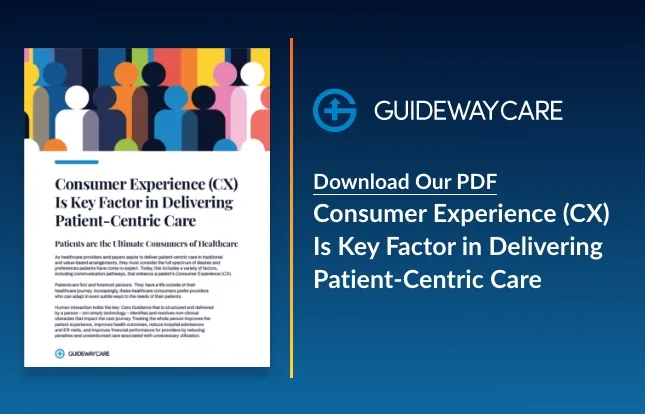How Can Hospitals Impact Social Determinants of Health?

Social Determinants of Health (SDOH), or the economic and social conditions that influence the health of patients, have a significant impact on medical outcomes. Factors like homelessness, food insecurity, education quality, and employment opportunities all play a role in an individual’s health and well-being—in fact, some experts say more than 80% of health is directly influenced by these factors, not medical care, according to U.S. News and World Report.
As hospitals transition to value-based care models, it is essential to take steps to address the social needs of patients, which has the potential to not only improve health outcomes, but lower readmission rates and overall costs.
Implement Consistent Social Needs Screening
Social needs screening is one of the most straightforward ways to gather details about SDOH, and while 88% of hospitals screen for social needs, according to Deloitte, most organizations’ efforts are not systematic or consistent. The survey found most hospitals predominantly screen inpatient and high-utilizer populations, not the broader community, and that screening is often inconsistent across departments.
To effectively impact SDOH, hospitals need to implement more comprehensive, standardized social needs screening. When SDOH assessments are given to a hospital’s wider community, leaders will have more accurate data of the challenges faced by its patient population and be able to implement initiatives that will have the greatest impact.
Create Intervention and Referral Systems
While collecting data on SDOH is the first step, it is essential that hospitals also have intervention and/or referral programs in place to address social needs.
“Providers are collecting data about whether or not a patient has adequate nutrition or lives in a safe home, but often they just don’t know what to do with it,” Krista Drobac, chairwoman of Aligning for Health, explained to Managed Healthcare Executive. “Unless that provider has the ability to actively refer the patient to a program, the data really just sits there.”
Hospitals may want to start by providing patients with referrals to social programs like SNAP or TANF, but other organizations have gone even further, creating initiatives to help address the social needs of their patients.
For instance, Boston Medical Center has a program that provides low-income patients with letters to prevent their utilities from being shut off in the winter, according to the National Center for Medical Legal Partnership. Another example is MedStar Health, a healthcare organization serving Baltimore and Washington D.C., which partnered with Uber to provide patients with means to get to their appointments, addressing transportation barriers.
Address Social Determinants With Non-Clinical Personnel
An effective way that hospitals can address SDOH is by utilizing non-clinical personnel such as lay navigators or community health workers. These non-clinical personnel can interview patients and help proactively assess their needs, as well as connect patients with services that can help address those needs.
By addressing social determinants, non-clinical personnel can help improve patient outcomes and experience, as well as create enormous cost savings. Research in Health Affairs found that a six-member team of community health workers at a Pennsylvania-based health system saved Medicaid over $1.4 million in one year, a 38% cost reduction.
Address Social Determinants With Guideway Care
The cost of hiring, training, and managing non-clinical personnel, as well as providing the technology platform and disease-specific protocols they need to be successful, can create difficulties for healthcare organizations who try to build an effective program in-house.
Guideway Care enables healthcare providers to rapidly implement Care Guidance programs that proactively identify and address the barriers and issues hidden within social determinants. Care Guides are hired, trained, and managed by Guideway Care, and our comprehensive Care Guidance technology platform and disease-specific protocols prompt the correct actions at the right time, every time. Care Guidance is so effective at addressing the non-clinical factors that impact patient health, that it has been proven to reduce readmissions for chronic conditions by 31-49%, producing significant savings in cost of care.
If you are ready to get started with a Care Guidance program that effectively addresses the social determinants of health of your patients and provides ROI in year one, contact Guideway Care today.
Contact Us Today To Learn How We Can Help
"*" indicates required fields




